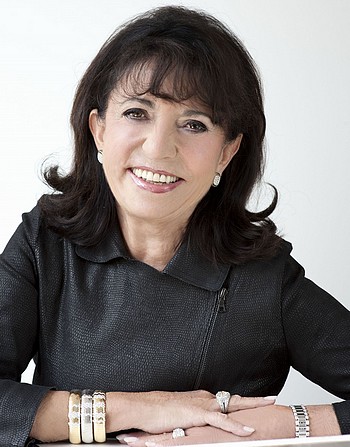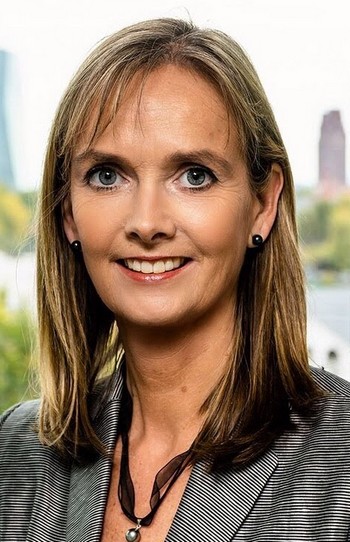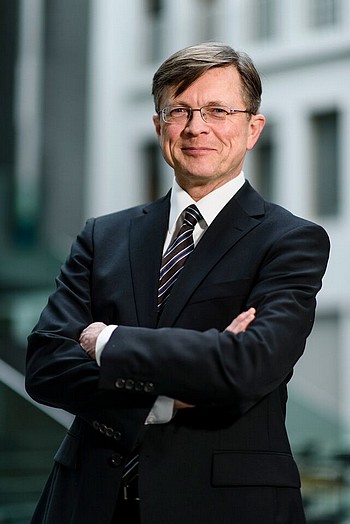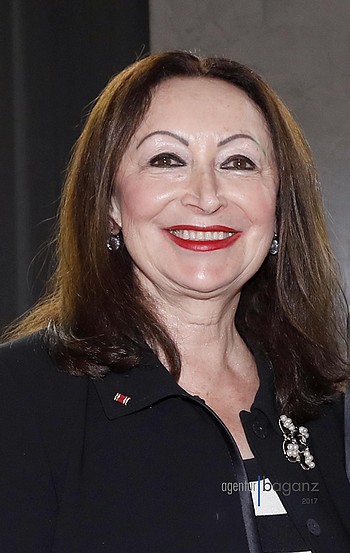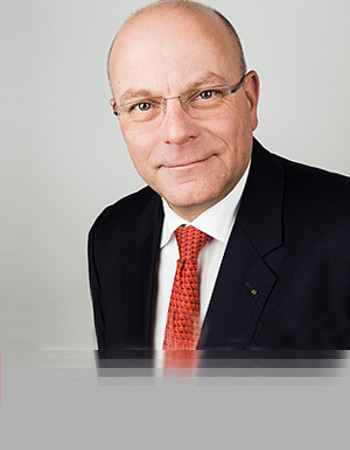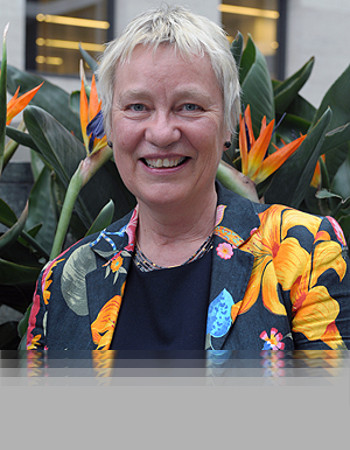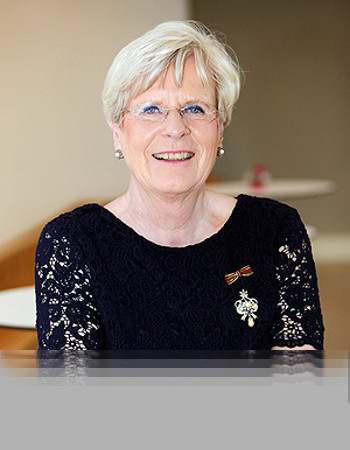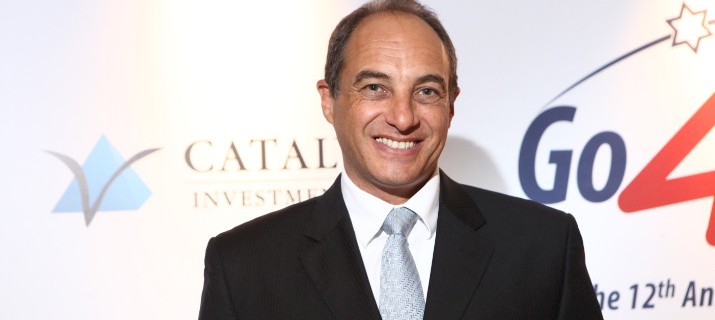
„High tech industry has become a locomotive for the entire economy“,
Édouard Cukierman about the phenomenon of the Israeli technology industry.
by Svetlana Alexeeva, Tel Aviv
Israel's steep climb to the Middle East’s high tech valley is impressive. Édouard Cukierman, the founder of a venture capital and private equity company Cukierman & Co. Investment House which focuses on disruptive technologies and startups, has observed the country’s success story from the very beginning in the 1990s. Today, Cukierman & Co. provides a full array of services focusing on technologies that made Israel famous: Life Sciences, Robotics, IT, Cyber Security, Mobility, Telecom and CleanTech. We met Édouard Cukierman, and the company's leading representatives, in its HQ in the HaArba'a Tower in Tel Aviv’s business district.
Alexeeva: Israel's steep climb to a high tech valley in the Middle East is absolutely impressive. As a founder of an investment company focusing on disruptive technologies and startups, you’ve observed the country’s success story from the very beginning in the 1990s. How did it all start?
Cukierman: I was born in France and moved to Israel when I was 18. In 1993, I established one of the first venture capital (VC) funds in Israel. In 1997, it went public in Paris. It was the first Israeli IPO (Initial Public Offering) in Europe. Two years later, with Wizcom, I did the first listing of a non-German company in Germany on the Deutsche Börse (Neuer Markt). This was our kick-off. The Neuer Markt was a new German stock market segment, in France, it was the Nouveau Marché. We felt much more enthusiasm from the German investors. The French were very much driven by politics at that time. All in all, we took public more than 100 Israeli companies, mostly on the French, German, Swiss and London stock exchanges.
Why in Europe?
It may be normal for a German company to go public in Germany. But an Israeli company would raise money where it can. We also have a significant presence in China and advise our clients on Nasdaq listings in the U.S. By the way, we were the only VC fund to invest in Mobileye which turned out be a great success.
Sure. Intel, a multinational chip-maker, acquired it in 2017 and paid a pretty large sum to have Mobileye’s self-driving-car technology.
Jerusalem-based Mobileye was one of the portfolio companies of Catalyst which is our private equity fund. We have a very diversified portfolio and try to pick the leaders in each field.
Speaking of venture and private equity funding around the world, how prominent is Europe’s position?
Among all countries, the number one are the United States, but the number two is Israel. The EU ranks third. All European Vcs deploy less money than Israeli funds. Also by number of unicorns (private companies valued more than one billion Dollars – S. A.), Israel is leading. There are more unicorns in the tiny country Israel than in all EU countries together. The high tech industry has become a locomotive for the entire economy for the last 30 years. Even today, the average annual GDP growth in Israel is higher than in the most OECD countries.
What trends do you observe in the course of the last transactions completed by Cukiermann & Co.?
Only in 2021, we took public more than 20 Israeli companies in the U.S. The volume allocated in our high tech VC funds has reached 25 billion Dollars. Projections for this year are similar. As for private placements and M&A, we see a lot of transactions going on.
Before the COVID-pandemic, China’s involvement in the Israeli technology sector was relatively high. How is the situation today?
Due to regulatory issues imposed by Chinese authorities, China has almost frozen its investments activities. Besides, it was difficult for Israeli companies aiming at a Nasdaq IPO to have major shareholders in China. COVID has been a big issue, too. That’s why we’ve seen a sharp decline in cooperation with China in the last three years.
Israel’s technology firms rank best in a wide range of innovative industries globally. What is the secret of that rapid development? Does it refer to a smart government support or to a special mindset of Israelites?
Actually, I wrote a book about it called Israel Valley, together with Pearson France. It illustrates our historical and cultural backdrop, and its impact on Israel's innovative power. It also refers to the defence industry, energy and life sciences. Let me give you a brandnew example. There is a fantastic Israeli company that developed a special high-powered laser. In the future, it could be a complementary solution to our air-defence system Iron Dome. It’s is effective but also expensive. They spend 80,000 Dollars on average for each interceptor missile. When U.S. President Joe Biden came in July to Israel, they showed him that laser defence technology. The system can target threats real-time, and is cost-efficient.
To sum up, what have been the decisive push / success factors for Israel, to forward in technology and innovation capability?
First, education. Israel has the highest investment per capita in education in the world. Second, military and defence. The army has an important impact because people are trained to have responsibility from an early age. They gain a lot of experience through interacting with other people and ethnical groups. Besides, companies in tiny countries like Israel have to raise capital and to think globally from the very beginning. They have to complete with the international leaders which means compete with the best. And to succeed worldwide, brings you to the highest level of quality, to become state-of-the-art.
What about the government’s role?
It's mainly indirect support, by allocating tax money to education or military. Besides, the government provides assistance to new immigrants. Particularly in the 1990s, more than one million immigrants from the former Soviet Union came to Israel through Aliyah (describes the return of Jewish people from exile to Israel – S. A.).
The level of education in the Soviet Union was relatively high, in particular in technical subjects such as mathematics and physics...
Out of this one million Soviet people, around 64 per cent had an academic degree, about 37 per cent an engineering degree. Many of them, their sons and grandsons became entrepreneurs. At that time, Israel had only five millions inhabitants. So one million well-educated new-comers was a significant number. It had a major impact on the society, the culture and the economy.
Investing in the quality of human capital seems to be key. Do you also see any obstacles to Israel’s future development?
Definitely the demography. The problem is that the orthodox Jewish population is growing but up to now they’re not integrated in the society. Particularly ultra-orthodox Jews are not interested in interaction in order to avoid risks of their religious deterioration into the more secular lifestyle. They are really disconnected – to the society, to the internet, to the Western values and education.
What about the other big Israeli group, the Arab part?
Arab people are probably the most interesting success story in the last 10-15 years.
Why?
Just look at the largest technical universities or engineering and medical schools in Israel. The proportion of Arab students is here higher than the percentage of the Arab population in Israel. It is a good example of successful integration. As a result of the last elections, for the first time ever, the United Arab List, an Arab party, joined the Israeli Government. It was the key support to the current coalition. Without them, Bennet couldn't be Prime Minister. More Arab people want to be part of Israel’s ecosystem and to have their own representatives in the Knesset. Twenty years ago, the Arab population was the poorest group. Now, the poorest are the ultra-orthodox Jews. They’re around 15 per cent of the entire population but this group is growing fast.
On November 1, the elections will be held in Israel again. In a span of three years, these are the fifth Knesset elections after the Bennett–Lapid-coalition fell in June. How do the people feel about it?
The election system in Israel is not really effective. But it’s hard to motivate politicians in the Knesset to reform it. The current snap elections are terrible for the economy. People wish for more stability but all the plans are short-term now. Actually, the long-term success of the Israeli technology sector is despite of the government.
Israel and Germany have historically a special relationship, because of the Holocaust. What is the image of Germany among Israeli citizens today?
It's complex. The younger generation is very much aware of the country’s history but also open to the modern Germany. The older generation, and some of them experienced the Shoah directly, cannot forget what happened. There are always mixed feelings about Germany. But I also see a change in attitude. German political leaders show more responsibility, for example recently towards families who suffered from the Munich attack in 1972. We still need a better understanding. I usually invite my German guests to visit Yad Vashem in Jerusalem, to understand Israel’s history, and how it impacted the country.
Contact:
Svetlana.Alexeeva@digital-insight.de
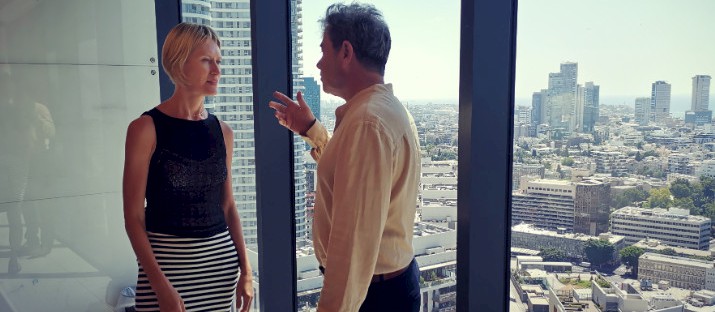
Blättern Sie hier in der aktuellen Ausgabe:
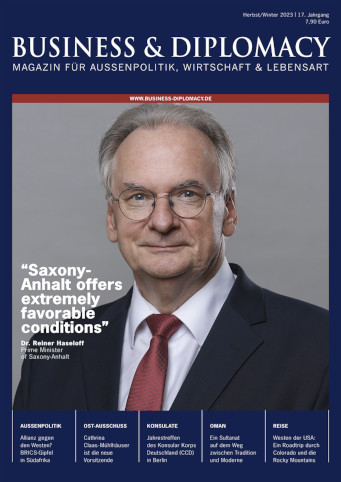


ABONNEMENT
Möchten Sie BUSINESS & DIPLOMACY regelmäßig lesen?
MONATSBRIEF
Wenn Sie sich für unseren kostenlosen Monatsbrief anmelden möchten, senden Sie bitte eine Nachricht.

LESER ÜBER UNS
Impressum | Datenschutzerklärung
© Diplomat Media Berlin 2017 —

